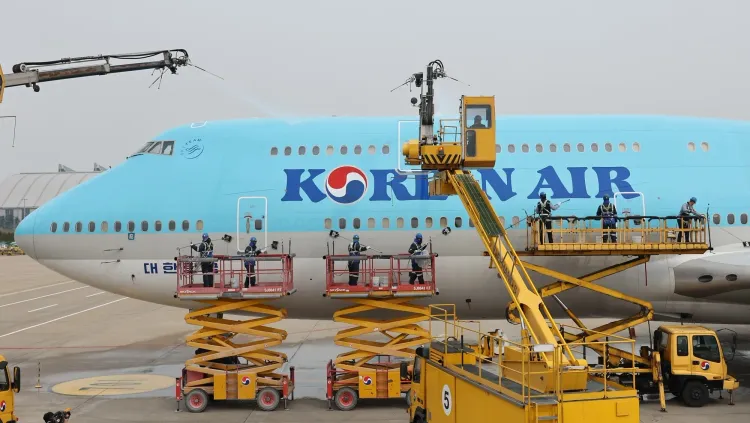Korean Air Finalizes Acquisition of Asiana, Incorporating It as a Subsidiary

Seoul, Dec 12 (NationPress) Korean Air, South Korea's largest airline, has successfully incorporated local competitor Asiana Airlines as a subsidiary, completing a lengthy acquisition journey, the company disclosed on Thursday.
Korean Air invested 1.5 trillion won ($1.04 billion) to obtain 131.57 million newly issued shares from Asiana, thereby taking control of the nation's second-largest full-service airline within a 1.8 trillion-won merger agreement.
The shares acquired from Asiana represent 63.88 percent of the total, as stated by Korean Air.
Initially, Korean Air revealed its intention to acquire the financially troubled airline in November 2020. It first invested 300 billion won to purchase Asiana's perpetual convertible bonds.
The company finalized the share acquisition on Wednesday after securing necessary approvals from antitrust authorities across 14 countries and regions, including the European Union.
To obtain these approvals, the company made concessions to competition regulators, which involved divesting Asiana's cargo business and reallocating routes to other airlines.
Korean Air will fully integrate Asiana after a two-year post-merger integration (PMI) process, during which its low-cost subsidiary Jin Air Co. will absorb Asiana's budget units, Air Seoul Inc. and Air Busan Co., according to a company spokesperson.
After the completion of the PMI program, Asiana, Air Seoul, and Air Busan will cease to exist, the spokesperson added.
To enhance business synergies, the combined Korean Air will diversify time slots on overlapping routes and introduce new destinations while retaining the current workforce post-PMI, the statement indicated.
The expanded Korean Air anticipates becoming the world’s 12th largest airline based on revenue passenger kilometers, a metric indicating the volume of passengers transported by an airline.
The company also intends to present the mileage point conversion ratio between the two airlines to the Fair Trade Commission (FTC) for review by June next year.
Asiana is scheduled to conduct an extraordinary shareholders meeting on January 16 to appoint new board members nominated by Korean Air, as mentioned in the statement.
On the same day, the FTC imposed certain corrective actions as a prerequisite for Korean Air's acquisition of Asiana to address competition issues.
The primary stipulations include a requirement for both airlines to maintain at least 90 percent of their pre-merger seating capacity on key routes.
To alleviate potential competition concerns, the FTC has mandated that the airlines ensure that seat availability on 40 routes does not drop below 90 percent of their 2019 levels.










